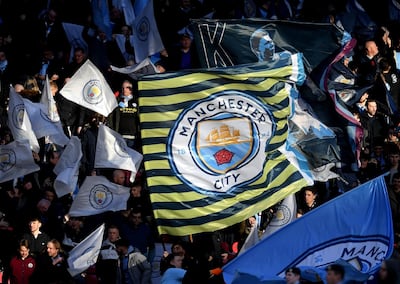It has become progressively more illogical to talk about Manchester City's past in order to understand its present. Almost nothing from the football club's decades of failure helps to explain its recent success. But it is worth making an exception after the club secured another trophy last weekend. It was the side's fifth League Cup title in seven years.
As a fan who lived through the dark days of debt and disaster, and who supported the club as they slipped down the divisions ever closer to oblivion and possible extinction, it is still astonishing to look back to see how far the organisation has come in a relatively short space of time. Fans of other teams may claim that success matters more to them, but try telling that to any City supporter who lived through the years of dysfunction and despair.

Before the club won the FA Cup in 2011, it had gone 35 years without a major honour. Moreover, it had been 25 years since the team's last appearance in a cup final at Wembley in the now unloved and forgotten Full Members' Cup.
In the lean years, I used to convince myself that a single appearance in a major final would be enough to sate my hunger for City to be better. These were the years when a trip to Wembley in a showpiece game seemed like an impossible dream.
In the past three seasons, the club has claimed six of the last seven trophies on offer domestically – eight out of nine if you also include the FA Community Shield. New heights have been scaled time and again. Wembley is now a familiar place to a generation of City fans.
Since the transformation of the club began under Abu Dhabi ownership more than 11 years ago, 14 major trophies have been secured, the Etihad Stadium has been extended and a world-class academy has been constructed.
The women’s team has gone from strength to strength, with six major trophies won in the past six years, making it the most successful WSL team in that period. Under the banner of City Football Group, a whole family of clubs is under development.
This season the Carabao Cup has been secured for a third year running and there are other targets to aim for, even if the club's defence of the Premier League title has been progressively unpicked by a relentless Liverpool team who are certain to claim their first league title in 30 years.
There has been so much to enjoy, particularly in the Pep Guardiola years, which helps to explain why there has been a visceral reaction to suggestions that City fans were happier in the dark days of yesteryear than they are today. That is just an inelegant lie.
No one wants a return to the bad times of underachievement and chaos, although there is also a deeply ingrained understanding within much of the fan base of where the club has come from and how special these times are. No one takes them for granted and most are aware that they could quickly fade. History is littered with collapsed football empires.

In some respects, City is an easy target. Despite the fact that the transformation plan undertaken since 2008 did not guarantee success, the club’s greatest triumph under Guardiola has been to make it look like winning domestic trophies is somehow preordained.
Before Sunday's final against Aston Villa, the match previews suggested that City were unbackable favourites. The game itself proved a much tougher challenge, with the result in doubt until the final moments. If City had not won, they would probably have been criticised for being overpaid failures and it would have been called the shock of the century. Such is the life of a thoroughbred football club now used to finishing first past the post.
There is also the case waiting to be heard in the Court of Arbitration for Sport, where City will appeal against a two-season ban from European competition imposed by Uefa last month for allegedly breaching Financial Fair Play regulations.
The club regards the process to date as having been "initiated, prosecuted and judged" by Uefa. It says it will provide "irrefutable evidence" of its innocence when the appeal is heard by an independent judicial body.
That day cannot come too soon, because terrible things have been said about City and their fans and fanciful suggestions have been pushed forward about further swingeing sanctions being imposed even before the appeal – and, specifically, City’s case – has been heard.
There is also the broader question about whether FFP rules are there to prop up an existing elite – only one new name, Chelsea, has been etched onto the Champions League trophy this century – or to ensure good stewardship of a football club.
While neither the Uefa investigation nor the CAS appeal seeks to answer that question, football's financial regulations should be written to save clubs like Bury from going under rather than to punish a solvent and sustainable club like City.
The fact that City are both of those things is, arguably, the greatest achievement of the past few years and once again explains why the club’s supporters will not be hankering after the bad old days of debt and lower divisions.
Nick March is assistant editor-in-chief at The National


